Categories
Economics
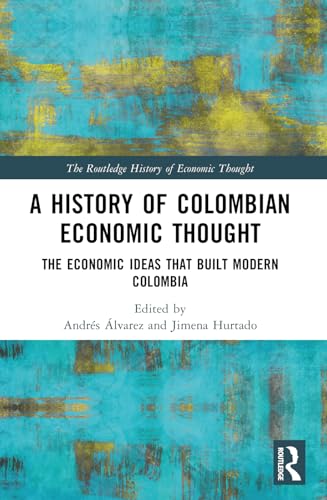
A History of Colombian Economic Thought
Andres Alvarez, Jimena Hurtado
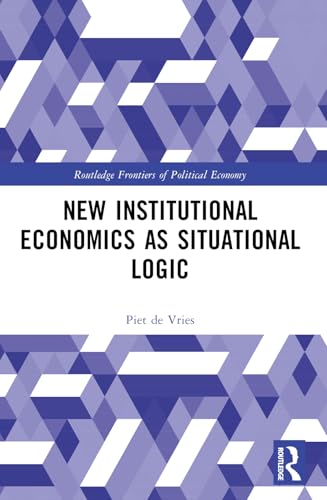
New Institutional Economics as Situational Logic
Piet De Vries
Drawing on phenomenological and realist approaches, this book surveys the theoretical evolution of new institutional economics. For all its popularity and explanatory power, new institutional economics is not a homogenous field but encompasses a range of different theoretical approaches starting from Coase and the introduction of transaction costs. In particular, the concept of rationality is a rich source of dispute leading to a bifurcation between ‘insider’ and ‘outsider’ perspectives. The insider view refers to studying conscious human beings – the economic actor – who seek their self-interest and find themselves in their mundane situation. The self-interest of the economic actor bestows him with logic. It makes the logic of the situation the method of economics, as Karl Popper establishes. Thus, the book argues for the positioning of new institutional economics as situational logic, that is, an economic theory that formulates and studies single-exit situations that face the economic actor. Ultimately, this book presents a critical appraisal of new institutional economics theories based on a substantiated methodological perspective that effectively navigates the theorist between realism and rigor. This book will be of interest to readers of new institutional economics, economic theory, and the philosophy of economics and social sciences.
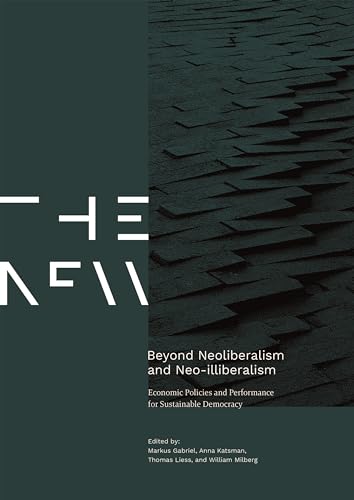
Beyond Neoliberalism and Neo-illiberalism: Economic Policies and Performance for Sustainable Democracy
Markus Gabriel, Anna Katsman, Thomas Liess, William Milberg
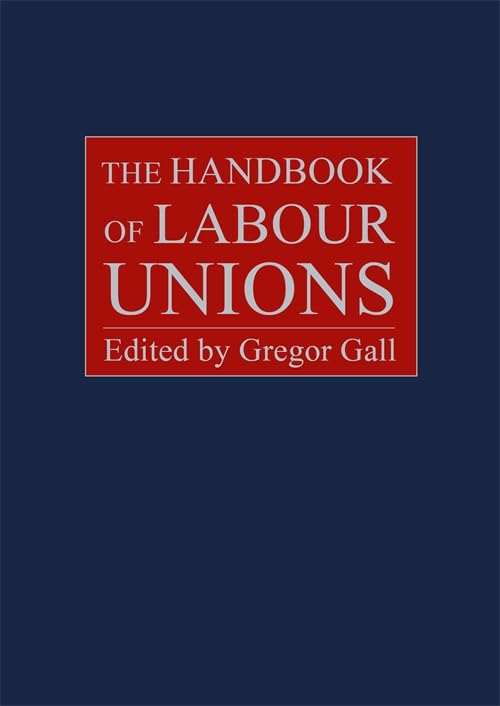
The Handbook of Labour Unions
Gregor Gall
Before the 2023 cost-of-living crisis, some believed that the Covid-19 pandemic had ushered in a new era of state intervention and the end of neoliberalism. This was a forlorn hope, as governments intervened precisely to preserve the status quo. Growing levels of income and wage inequality, the precaritization of many sections of the labour force and proletarianization of many in the highly unionised professional middle classes have made labour unions as salient as ever. This handbook assembles an array of experts to critically engage with the debates and discussions about the role and purpose of unions and the many means by which they seek to attain them. The book provides insights into how challenges and problems may be surmounted and aims to fuse the understanding of the past and present to provide a general guide for shaping the future.
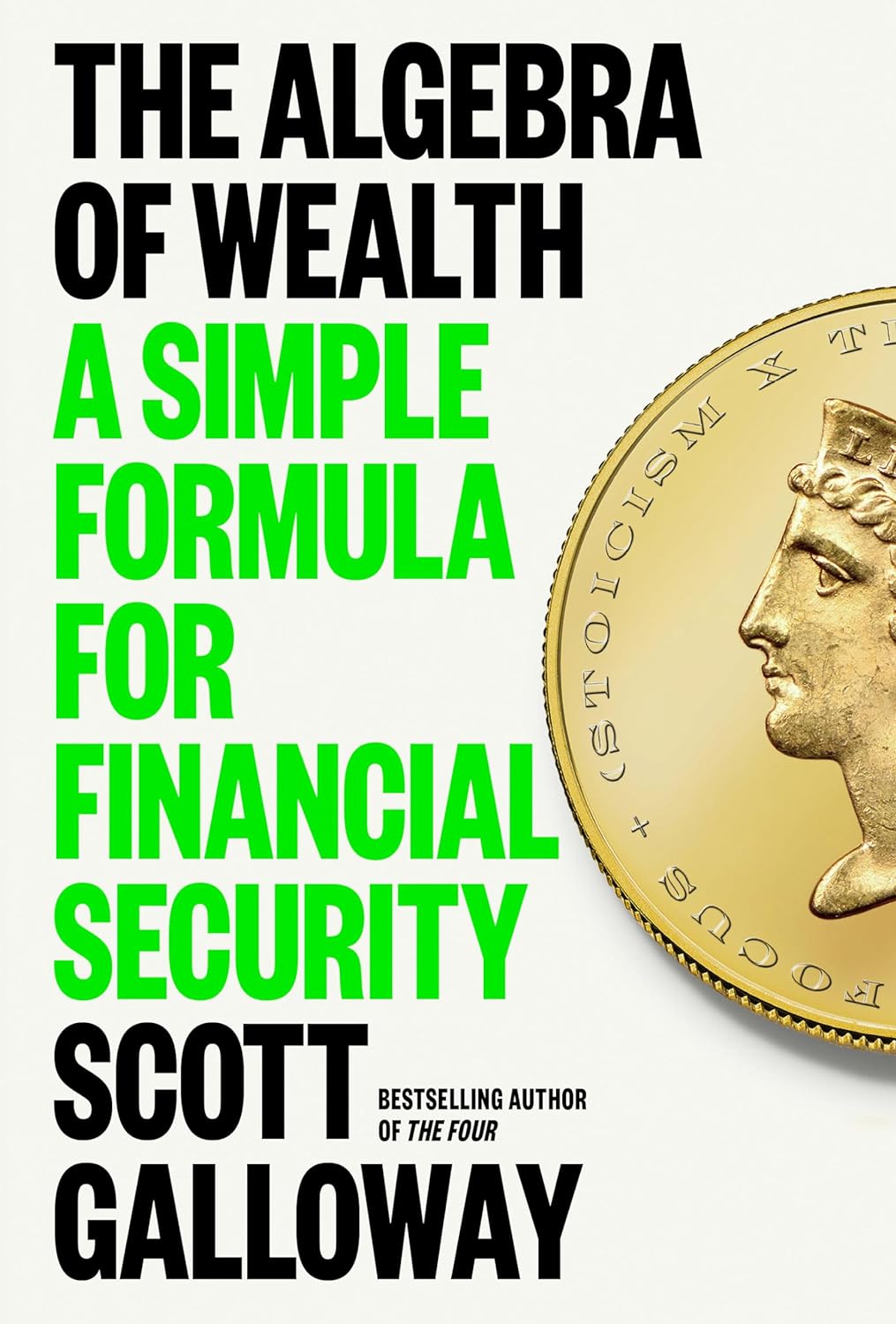
The Algebra of Wealth: A Simple Formula for Financial Security
Scott Galloway
AN INSTANT #1 NEW YORK TIMES BESTSELLER A must-have guide to optimizing your life for wealth and success, from bestselling author, NYU professor, and co-host of the Pivot podcast Scott Galloway. Today's workers have more opportunities and mobility than any generation before. They also face unprecedented challenges, including inflation, labor and housing shortages, and climate volatility. Even the notion of retirement is undergoing a profound rethink, as our life spans extend and our relationship with work evolves. In this environment, the tried-and-true financial advice our parents followed is no longer enough. It's time for a new playbook. In The Algebra of Wealth, Galloway lays bare the rules of financial success in today's economy. In his characteristic unvarnished, no-BS style, he explains what you need to know in order to better your chances for economic security no matter what. You’ll How to find and follow your talent, not your passion, when making career decisionsHow to ride and optimize big economic waves (hard market dynamics always trump individual achievement)What small steps you can take that pay big returns later, including diversification and tax planningHow stoicism can help you minimize spending and develop better financial habits Bursting with practical, game-changing advice from one of the world’s most popular business school professors, The Algebra of Wealth is the practical guidebook you need to win today’s wealth game. , Brimming with wise, game-changing advice from one of the world’s most popular business school professors, The Algebra of Wealth offers a powerful framework for making the most of what opportunities come your way.
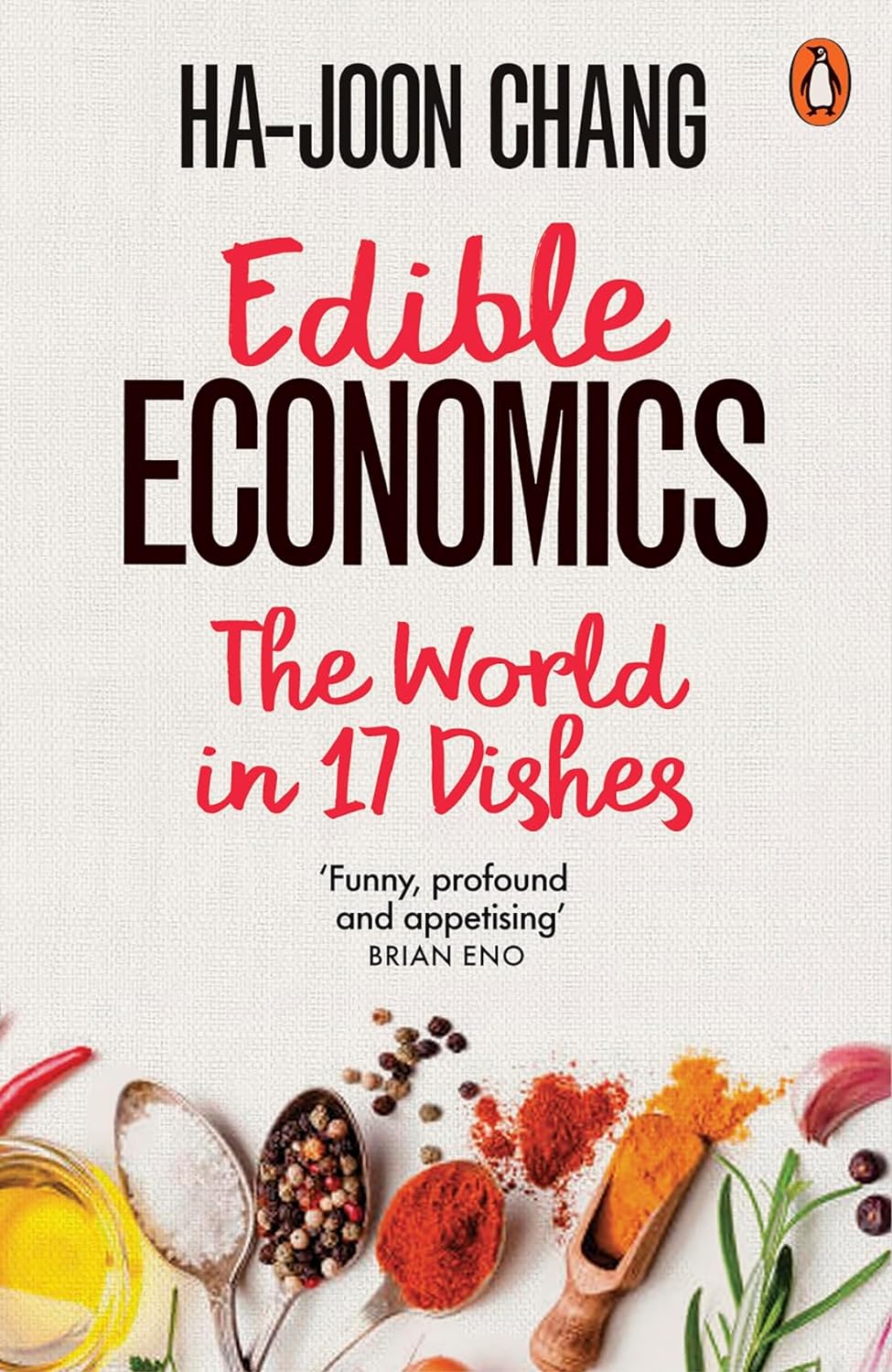
Edible Economics: The World in 17 Dishes
Ha-Joon Chang
RADIO 4 BOOK OF THE WEEK Economic thinking - about globalisation, climate change, immigration, austerity, automation and much more - in its most digestible form For decades, a single free market philosophy has dominated global economics. But this is bland and unhealthy - like British food in the 1980s, when bestselling author and economist Ha-Joon Chang first arrived in the UK from South Korea. Just as eating a wide range of cuisines contributes to a more interesting and balanced diet, so too is it essential we listen to a variety of economic perspectives. In Edible Economics, Chang makes challenging economic ideas more palatable by plating them alongside stories about food from around the world. He uses histories behind familiar food items - where they come from, how they are cooked and consumed, what they mean to different cultures - to explore economic theory. For Chang, chocolate is a life-long addiction, but more exciting are the insights it offers into post-industrial knowledge economies; and while okra makes Southern gumbo heart-meltingly smooth, it also speaks of capitalism's entangled relationship with freedom and unfreedom. Explaining everything from the hidden cost of care work to the misleading language of the free market as he cooks dishes like anchovy and egg toast, Gambas al Ajillo and Korean dotori mook, Ha-Joon Chang serves up an easy-to-digest feast of bold ideas. Myth-busting, witty and thought-provoking, Edible Economics shows that getting to grips with the economy is like learning a recipe: if we understand it, we can change it - and, with it, the world.
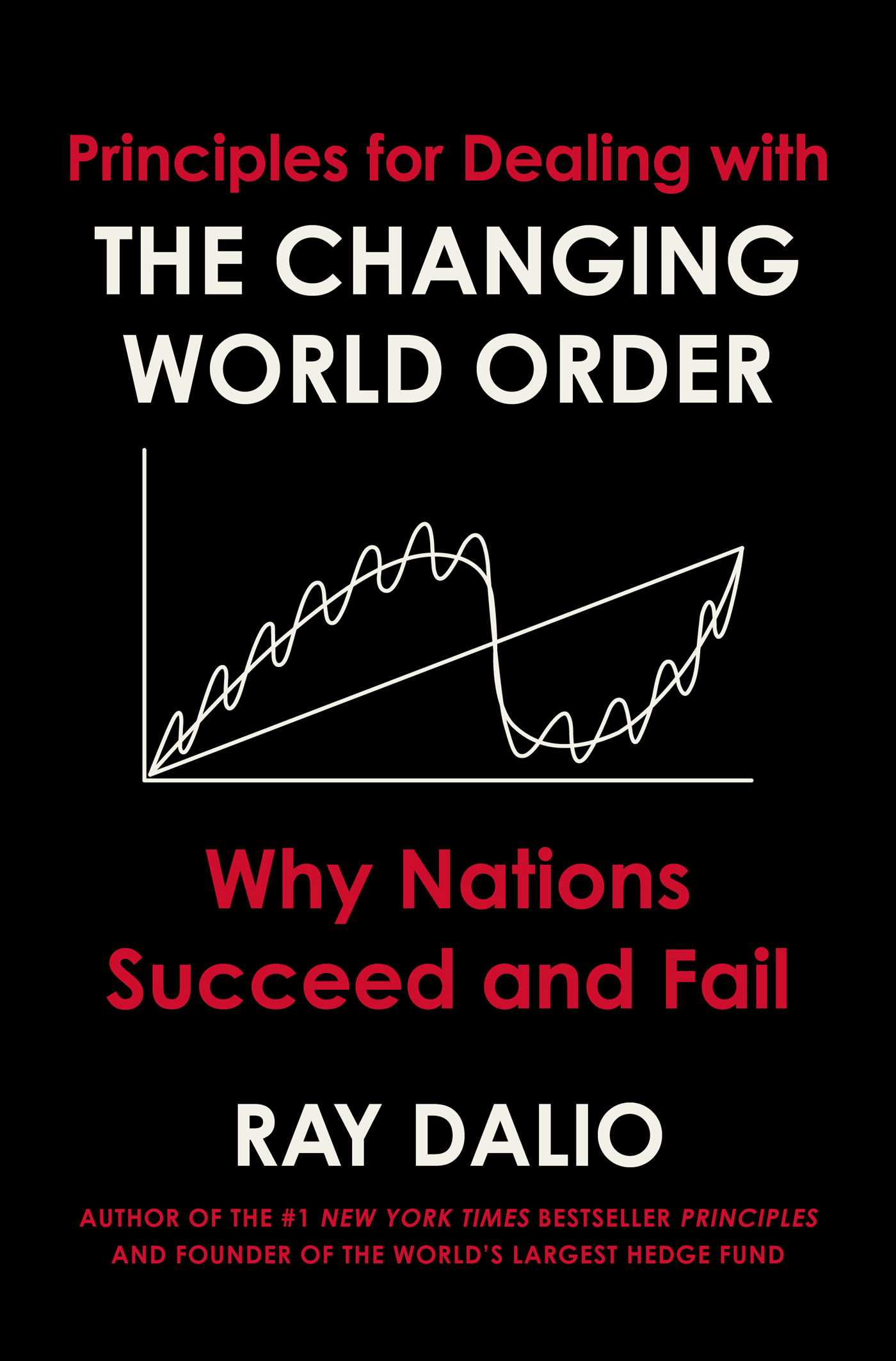
Principles for Dealing with the Changing World Order: Why Nations Succeed and Fail
Ray Dalio
NEW YORK TIMES BESTSELLER * MORE THAN ONE MILLION COPIES SOLD “A provocative read...There are few tomes that coherently map such broad economic histories as well as Mr. Dalio’s. Perhaps more unusually, Mr. Dalio has managed to identify metrics from that history that can be applied to understand today.” —Andrew Ross Sorkin, The New York Times From legendary investor Ray Dalio, author of the #1 New York Times bestseller Principles, who has spent half a century studying global economies and markets, Principles for Dealing with the Changing World Order examines history’s most turbulent economic and political periods to reveal why the times ahead will likely be radically different from those we’ve experienced in our lifetimes—and to offer practical advice on how to navigate them well. A few years ago, Ray Dalio noticed a confluence of political and economic conditions he hadn’t encountered before. They included huge debts and zero or near-zero interest rates that led to massive printing of money in the world’s three major reserve currencies; big political and social conflicts within countries, especially the US, due to the largest wealth, political, and values disparities in more than 100 years; and the rising of a world power (China) to challenge the existing world power (US) and the existing world order. The last time that this confluence occurred was between 1930 and 1945. This realization sent Dalio on a search for the repeating patterns and cause/effect relationships underlying all major changes in wealth and power over the last 500 years. In this remarkable and timely addition to his Principles series, Dalio brings readers along for his study of the major empires—including the Dutch, the British, and the American—putting into perspective the “Big Cycle” that has driven the successes and failures of all the world’s major countries throughout history. He reveals the timeless and universal forces behind these shifts and uses them to look into the future, offering practical principles for positioning oneself for what’s ahead.

The Accursed Share, Volume I
Georges Bataille, Robert Hurley
From the acclaimed French philosopher, intellectual, and novelist, a brilliant account of the social and economic costs of civilization In this important work, Georges Bataille uses his novel economic theory as the basis for an incisive inquiry into the very nature of civilization. He introduces here his concept of the accursed share, the surplus energy that any system, natural or cultural, must expend; it is this expenditure, according to Bataille, that most clearly defines a society. His examples include sacrifice among the Aztecs, potlatch among the Northwest Coast Indians, military conquest in Islam, and Buddhist monasticism in Tibet. In this way, Bataille proposes a theory of a “general economy” based on excess and exuberance that radically revises conventional economic models of scarcity and utility. A brilliant blend of economics and aesthetics, ethics and anthropology, The Accursed Share provides an excellent introduction to Bataille’s philosophic work. It will be of particular interest not only to readers of his fiction and essays but also to cultural theorists, anthropologists, and economists of all schools.
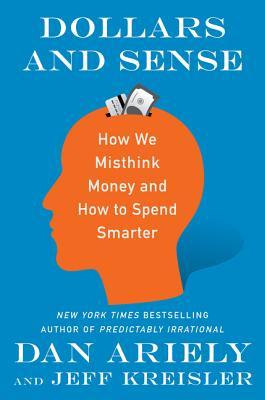
Dollars and Sense: How We Misthink Money and How to Spend Smarter
Dan Ariely, Jeff Kreisler
Why is paying for things painful? Why are we comfortable overpaying for something in the present just because we’ve overpaid for it in the past? Why is it easy to pay $4 for a soda on vacation, when we wouldn’t spend more than $1 on that same soda at our local grocery store? We think of money as numbers, values, and amounts, but when it comes down to it, when we actually use our money, we engage our hearts more than our heads. Emotions play a powerful role in shaping our financial behavior, often making us our own worst enemies as we try to save, access value, and spend responsibly. In Dollars and Sense, bestselling author and behavioral economist Dan Ariely teams up with financial comedian and writer Jeff Kreisler to challenge many of our most basic assumptions about the precarious relationship between our brains and our money. In doing so, they undermine many of personal finance’s most sacred beliefs and explain how we can override some of our own instincts to make better financial choices.Exploring a wide range of everyday topics—from the lure of pain-free spending with credit cards to the pitfalls of household budgeting to the seductive power of holiday sales—Ariely and Kreisler demonstrate how our misplaced confidence in our spending habits frequently leads us astray, costing us more than we realize, whether it’s the real value of the time we spend driving forty-five minutes to save $10 or our inability to properly assess what the things we buy are actually worth. Together Ariely and Kreisler reveal the emotional forces working against us and how we can counteract them. Mixing case studies and anecdotes with concrete advice and lessons, they cut through the unconscious fears and desires driving our worst financial instincts and teach us how to improve our money habits.The result not only reveals the rationale behind our most head-scratching financial choices but also offers clear guidance for navigating the treacherous financial landscape of the brain. Fascinating, engaging, funny, and essential, Dollars and Sense provides the practical tools we need to understand and improve our financial choices, save and spend smarter, and ultimately live better.
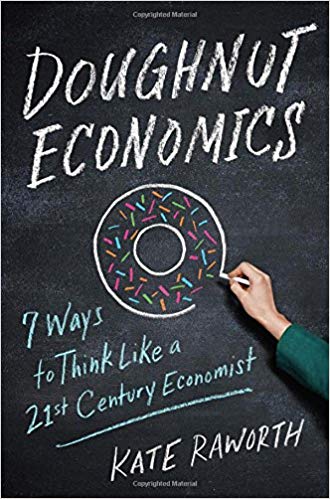
Doughnut Economics: Seven Ways to Think Like a 21st-Century Economist
Kate Raworth
Economics is the mother tongue of public policy. It dominates our decision-making for the future, guides multi-billion-dollar investments, and shapes our responses to climate change, inequality, and other environmental and social challenges that define our times. Pity then, or more like disaster, that its fundamental ideas are centuries out of date yet are still taught in college courses worldwide and still used to address critical issues in government and business alike. That's why it is time, says renegade economist Kate Raworth, to revise our economic thinking for the 21st century. In Doughnut Economics, she sets out seven key ways to fundamentally reframe our understanding of what economics is and does. Along the way, she points out how we can break our addiction to growth; redesign money, finance, and business to be in service to people; and create economies that are regenerative and distributive by design. Named after the now-iconic -doughnut- image that Raworth first drew to depict a sweet spot of human prosperity (an image that appealed to the Occupy Movement, the United Nations, eco-activists, and business leaders alike), Doughnut Economics offers a radically new compass for guiding global development, government policy, and corporate strategy, and sets new standards for what economic success looks like. Raworth handpicks the best emergent ideas--from ecological, behavioral, feminist, and institutional economics to complexity thinking and Earth-systems science--to address this question: How can we turn economies that need to grow, whether or not they make us thrive, into economies that make us thrive, whether or not they grow? Simple, playful, and eloquent, Doughnut Economics offers game-changing analysis and inspiration for a new generation of economic thinkers.
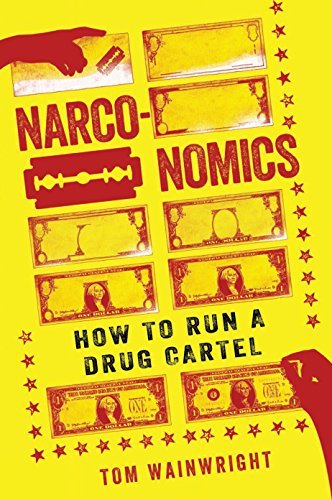
Narconomics: How to Run a Drug Cartel
Tom Wainwright
What drug lords learned from big business How does a budding cartel boss succeed (and survive) in the 300 billion illegal drug business? By learning from the best, of course. From creating brand value to fine-tuning customer service, the folks running cartels have been attentive students of the strategy and tactics used by corporations such as Walmart, McDonald's, and Coca-Cola. And what can government learn to combat this scourge? By analyzing the cartels as companies, law enforcers might better understand how they work--and stop throwing away 100 billion a year in a futile effort to win the "war" against this global, highly organized business. Your intrepid guide to the most exotic and brutal industry on earth is Tom Wainwright. Picking his way through Andean cocaine fields, Central American prisons, Colorado pot shops, and the online drug dens of the Dark Web, Wainwright provides a fresh, innovative look into the drug trade and its 250 million customers. The cast of characters includes "Bin Laden," the Bolivian coca guide; "Old Lin," the Salvadoran gang leader; "Starboy," the millionaire New Zealand pill maker; and a cozy Mexican grandmother who cooks blueberry pancakes while plotting murder. Along with presidents, cops, and teenage hitmen, they explain such matters as the business purpose for head-to-toe tattoos, how gangs decide whether to compete or collude, and why cartels care a surprising amount about corporate social responsibility. More than just an investigation of how drug cartels do business, Narconomics is also a blueprint for how to defeat them.
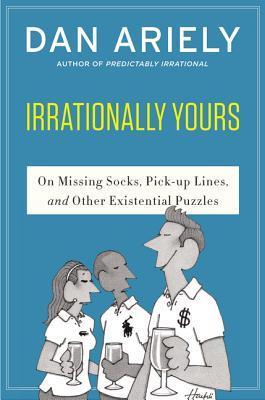
Irrationally yours : On Missing Socks, Pick-up Lines and Other Existential Puzzles
Dan Ariely, William Haefeli
Three-time New York Times bestselling author Dan Ariely teams up with legendary The New Yorker cartoonist William Haefeli to present an expanded, illustrated collection of his immensely popularWall Street Journal advice column, “Ask Ariely”.Behavioral economist Dan Ariely revolutionized the way we think about ourselves, our minds, and our actions in his books Predictably Irrational, The Upside of Irrationality, and The Honest Truth about Dishonesty. Ariely applies this scientific analysis of the human condition in his “Ask Ariely” Q & A column in the Wall Street Journal, in which he responds to readers who write in with personal conundrums ranging from the serious to the curious: What can you do to stay calm when you’re playing the volatile stock market? What’s the best way to get someone to stop smoking? How can you maximize the return on your investment at an all-you-can-eat buffet? Is it possible to put a price on the human soul? Can you ever rationally justify spending thousands of dollars on a Rolex?In Ask Ariely, a broad variety of economic, ethical, and emotional dilemmas are explored and addressed through text and images. Using their trademark insight and wit, Ariely and Haefeli help us reflect on how we can reason our way through external and internal challenges. Readers will laugh, learn, and most importantly gain a new perspective on how to deal with the inevitable problems that plague our daily life.
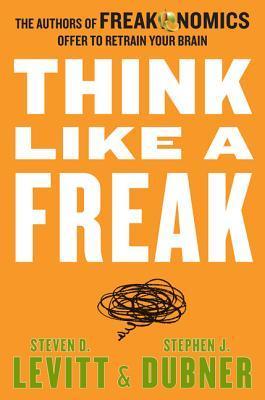
Think Like a Freak
Steven D. Levitt, Stephen J. Dubner
The New York Times bestselling Freakonomics changed the way we see the world, exposing the hidden side of just about everything. Then came SuperFreakonomics, a documentary film, an award-winning podcast, and more. Now, with Think Like a Freak, Steven D. Levitt and Stephen J. Dubner have written their most revolutionary book yet. With their trademark blend of captivating storytelling and unconventional analysis, they take us inside their thought process and teach us all to think a bit more productively, more creatively, more rationally—to think, that is, like a Freak. Levitt and Dubner offer a blueprint for an entirely new way to solve problems, whether your interest lies in minor lifehacks or major global reforms. As always, no topic is off-limits. They range from business to philanthropy to sports to politics, all with the goal of retraining your brain. Along the way, you’ll learn the secrets of a Japanese hot-dog-eating champion, the reason an Australian doctor swallowed a batch of dangerous bacteria, and why Nigerian e-mail scammers make a point of saying they’re from Nigeria. Some of the steps toward thinking like a First, put away your moral compass—because it’s hard to see a problem clearly if you’ve already decided what to do about it. Learn to say “I don’t know”—for until you can admit what you don’t yet know, it’s virtually impossible to learn what you need to. Think like a child—because you’ll come up with better ideas and ask better questions. Take a master class in incentives—because for better or worse, incentives rule our world. Learn to persuade people who don’t want to be persuaded—because being right is rarely enough to carry the day. Learn to appreciate the upside of quitting—because you can’t solve tomorrow’s problem if you aren’t willing to abandon today’s dud.Levitt and Dubner plainly see the world like no one else. Now you can too. Never before have such iconoclastic thinkers been so revealing—and so much fun to read.
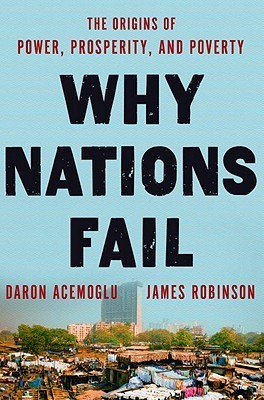
Why Nations Fail: The Origins of Power, Prosperity, and Poverty
Daron Acemoğlu, James A. Robinson
Brilliant and engagingly written, Why Nations Fail answers the question that has stumped the experts for centuries: Why are some nations rich and others poor, divided by wealth and poverty, health and sickness, food and famine? Is it culture, the weather, geography? Perhaps ignorance of what the right policies are? Simply, no. None of these factors is either definitive or destiny. Otherwise, how to explain why Botswana has become one of the fastest growing countries in the world, while other African nations, such as Zimbabwe, the Congo, and Sierra Leone, are mired in poverty and violence? Daron Acemoglu and James Robinson conclusively show that it is man-made political and economic institutions that underlie economic success (or lack of it). Korea, to take just one of their fascinating examples, is a remarkably homogeneous nation, yet the people of North Korea are among the poorest on earth while their brothers and sisters in South Korea are among the richest. The south forged a society that created incentives, rewarded innovation, and allowed everyone to participate in economic opportunities. The economic success thus spurred was sustained because the government became accountable and responsive to citizens and the great mass of people. Sadly, the people of the north have endured decades of famine, political repression, and very different economic institutions—with no end in sight. The differences between the Koreas is due to the politics that created these completely different institutional trajectories. Based on fifteen years of original research Acemoglu and Robinson marshall extraordinary historical evidence from the Roman Empire, the Mayan city-states, medieval Venice, the Soviet Union, Latin America, England, Europe, the United States, and Africa to build a new theory of political economy with great relevance for the big questions of today, including: - China has built an authoritarian growth machine. Will it continue to grow at such high speed and overwhelm the West? - Are America’s best days behind it? Are we moving from a virtuous circle in which efforts by elites to aggrandize power are resisted to a vicious one that enriches and empowers a small minority? - What is the most effective way to help move billions of people from the rut of poverty to prosperity? More philanthropy from the wealthy nations of the West? Or learning the hard-won lessons of Acemoglu and Robinson’s breakthrough ideas on the interplay between inclusive political and economic institutions? Why Nations Fail will change the way you look at—and understand—the world.
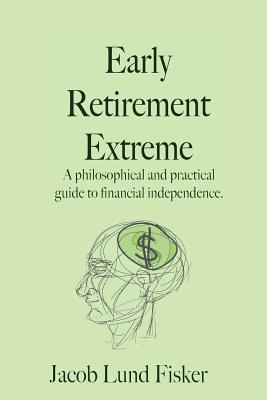
Early Retirement Extreme: A Philosophical and Practical Guide to Financial Independence
Jacob Lund Fisker
A strategic combination of smart financial choices, simple living, and increased self-reliance brought me financial independence at 30 and allowed me to retire from my profession at 33. Early Retirement Extreme shows how I did it and how anyone can formulate their own plan for financial independence. The book provides the principles and framework for a systems theoretical strategy for attaining that independence in 5-10 years. It teaches how a shift in focus from consuming to producing can help people out of the consumer trap, and offers a path to achieving the freedom necessary to pursue interests other than working for a living. The principles in Early Retirement Extreme show how to break the financial chains that hold people back from doing what they truly want to do. The framework has been used by many people over the last few years to accomplish a variety of goals. It provides people a means to achieve almost any goal, whether it’s debt-free living, extended travel, a sabbatical, a career change, time off to raise a child, a traditional retirement, or simply a desire for a more resilient and self-sufficient lifestyle. The book was initially written for people in their 20s and 30s, but its ideas aren’t limited to early retirees. Middle-aged people in the grips of consumerism can use the principles to take back control of their lives. People closer to retirement age who don’t feel adequately prepared can use it to set themselves up for a comfortable retirement in a relatively short period of time. Anyone worried about their financial future can use the principles in Early Retirement Extreme to make their future more secure.
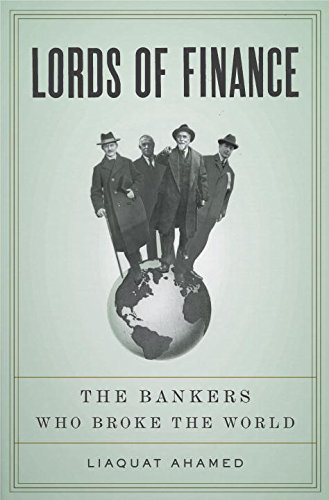
Lords of Finance: The Bankers Who Broke the World
Liaquat Ahamed
With penetrating insights for today, this vital history of the world economic collapse of the late 1920s offers unforgettable portraits of the four men whose personal and professional actions as heads of their respective central banks changed the course of the twentieth century It is commonly believed that the Great Depression that began in 1929 resulted from a confluence of events beyond any one person’s or government’s control. In fact, as Liaquat Ahamed reveals, it was the decisions taken by a small number of central bankers that were the primary cause of the economic meltdown, the effects of which set the stage for World War II and reverberated for decades. In Lords of Finance, we meet the neurotic and enigmatic Montagu Norman of the Bank of England, the xenophobic and suspicious Émile Moreau of the Banque de France, the arrogant yet brilliant Hjalmar Schacht of the Reichsbank, and Benjamin Strong of the Federal Reserve Bank of New York, whose façade of energy and drive masked a deeply wounded and overburdened man. After the First World War, these central bankers attempted to reconstruct the world of international finance. Despite their differences, they were united by a common fear—that the greatest threat to capitalism was inflation— and by a common vision that the solution was to turn back the clock and return the world to the gold standard. For a brief period in the mid-1920s they appeared to have succeeded. The world’s currencies were stabilized and capital began flowing freely across the globe. But beneath the veneer of boom-town prosperity, cracks started to appear in the financial system. The gold standard that all had believed would provide an umbrella of stability proved to be a straitjacket, and the world economy began that terrible downward spiral known as the Great Depression. As yet another period of economic turmoil makes headlines today, the Great Depression and the year 1929 remain the benchmark for true financial mayhem. Offering a new understanding of the global nature of financial crises, Lords of Finance is a potent reminder of the enormous impact that the decisions of central bankers can have, of their fallibility, and of the terrible human consequences that can result when they are wrong.
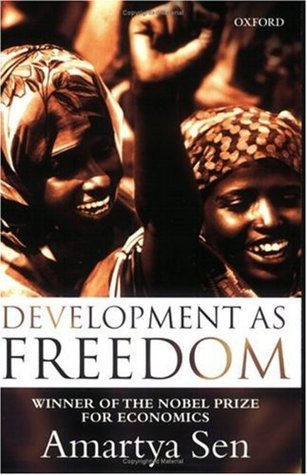
Development as Freedom
Amartya K. Sen
By the winner of the 1998 Nobel Prize in Economics, an essential and paradigm-altering framework for understanding economic development—for both rich and poor—in the twenty-first century. Freedom, Sen argues, is both the end and most efficient means of sustaining economic life and the key to securing the general welfare of the world's entire population. Releasing the idea of individual freedom from association with any particular historical, intellectual, political, or religious tradition, Sen clearly demonstrates its current applicability and possibilities. In the new global economy, where, despite unprecedented increases in overall opulence, the contemporary world denies elementary freedoms to vast numbers—perhaps even the majority of people—he concludes, it is still possible to practically and optimistically regain a sense of social accountability. Development as Freedom is essential reading.
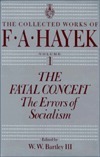
The Fatal Conceit: The Errors of Socialism (The Collected Works of F. A. Hayek, Vol. 1)
Friedrich A. Hayek, W.W. Bartley III
Hayek gives the main arguments for the free-market case and presents his manifesto on the "errors of socialism." Hayek argues that socialism has, from its origins, been mistaken on factual, and even on logical, grounds and that its repeated failures in the many different practical applications of socialist ideas that this century has witnessed were the direct outcome of these errors. He labels as the "fatal conceit" the idea that "man is able to shape the world around him according to his wishes." "The achievement of The Fatal Conceit is that it freshly shows why socialism must be refuted rather than merely dismissed—then refutes it again."—David R. Henderson, Fortune . "Fascinating. . . . The energy and precision with which Mr. Hayek sweeps away his opposition is impressive."—Edward H. Crane, Wall Street Journal F. A. Hayek is considered a pioneer in monetary theory, the preeminent proponent of the libertarian philosophy, and the ideological mentor of the Reagan and Thatcher "revolutions."
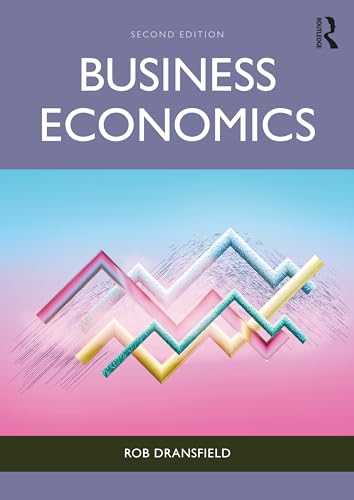
Business Economics
Rob Dransfield
Dransfield, Rob

Essential Mathematics for Economics
Alexis Akira Toda
Essential Mathematics for Economics covers mathematical topics that are essential for economic analysis in a concise but rigorous fashion. The book covers selected topics such as linear algebra, real analysis, convex analysis, constrained optimization, dynamic programming, and numerical analysis in a single volume. The book is entirely self-contained, and almost all propositions are proved. Features Replete with exercises and illuminating examples Suitable as a primary text for an advanced undergraduate or postgraduate course on mathematics for economics Basic linear algebra and real analysis are the only prerequisites. Supplementary materials such as Matlab codes, teaching slides etc. are posted on the book website
Financial Markets and Institutions (10th Edition)
Frederic S. Mishkin, Stanley G. Eakins
Financial Markets and Institutions takes a practical approach to the changing landscape of financial markets and institutions. The text uses core principles to introduce topics, then examines these models via real-world scenarios. Empirical applications of themes help you develop essential critical-thinking and problem-solving skills. The 10th Edition reflects major changes in the aftermath of the global financial and Covid crises. With timely new sections, cases and boxes, you'll have the latest, most relevant information to help prepare you for your future career.
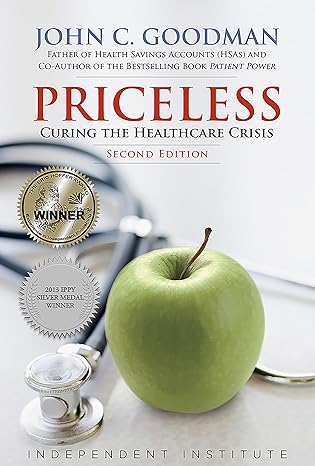
Priceless: Curing the Healthcare Crisis
John C. Goodman
A no-nonsense approach to health care, this book takes the Affordable Care Act to task and rejects Barack Obama’s vision. Arguing that the United States should create a market for sick people, in which health plans vigorously compete to solve the problems of diabetics, asthmatics, heart patients, cancer patients, and others with high expected health care costs, this book maintains that every example of a center of excellence—producing high-quality, low-cost care—originated from the supply side of the market, not the demand side. With practical advice on how typical employers can cut employee health costs in half, this handbook also examines a variety of health-related topics, including malpractice, insurance reform, and the institution of a privatized Medicare program.
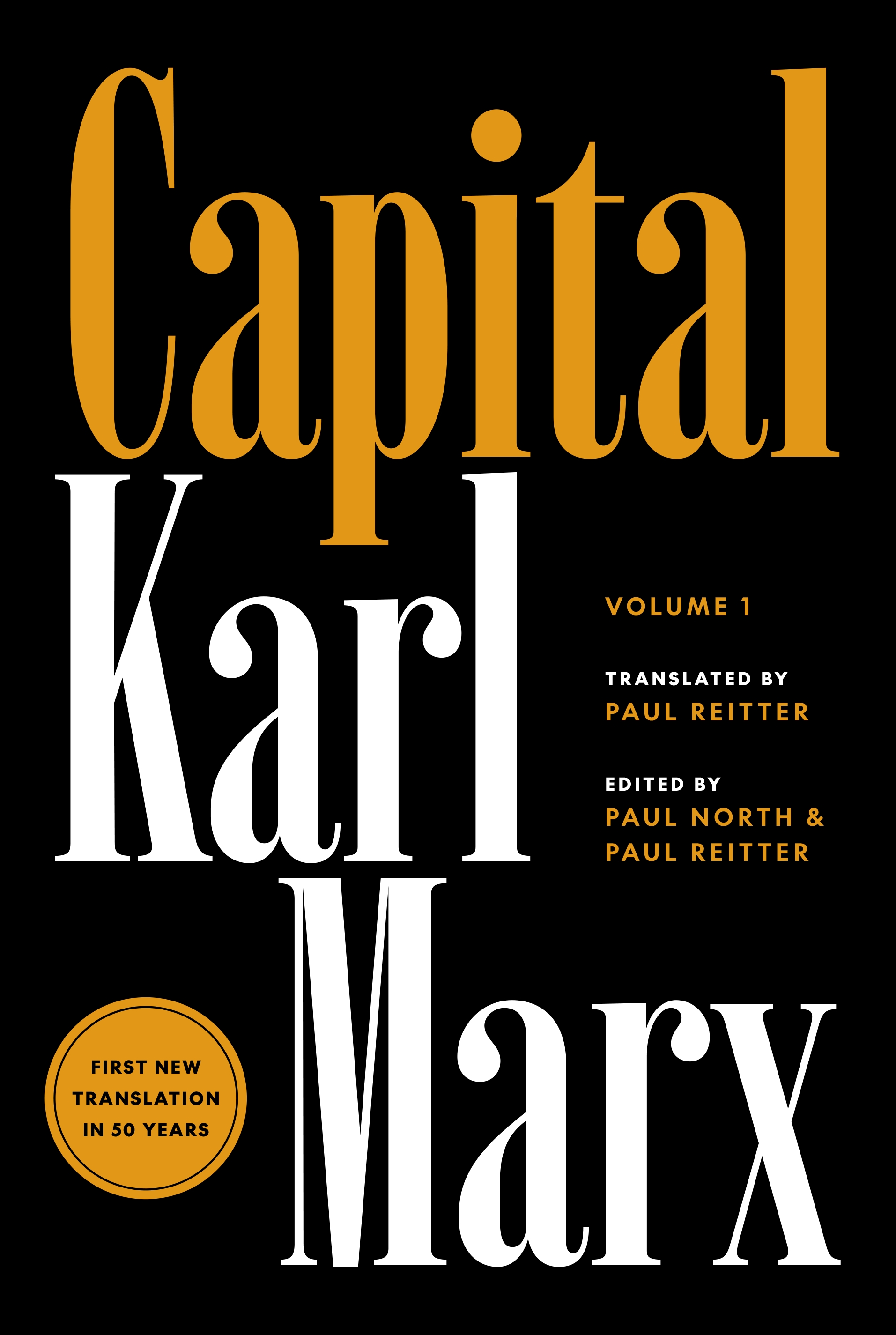
Capital: Critique of Political Economy, Volume 1
Karl Marx, Paul Reitter, Professor Paul North, Wendy Brown, William Clare Roberts
Karl Marx (1818–1883) was living in exile in England when he embarked on an ambitious, multivolume critique of the capitalist system of production. Though only the first volume saw publication in Marx’s lifetime, it would become one of the most consequential books in history. This magnificent new edition of Capital is a translation of Marx for the twenty-first century. It is the first translation into English to be based on the last German edition revised by Marx himself, the only version that can be called authoritative, and it features extensive commentary and annotations by Paul North and Paul Reitter that draw on the latest scholarship and provide invaluable perspective on the book and its complicated legacy. At once precise and boldly readable, this translation captures the momentous scale and sweep of Marx’s thought while recovering the elegance and humor of the original source. For Marx, our global economic system is relentlessly driven by “value”—to produce it, capture it, trade it, and most of all, to increase it. Lifespans are shortened under the demand for ever-greater value. Days are lengthened, work is intensified, and the division of labor deepens until it leaves two classes, owners and workers, in constant struggle for life and livelihood. In Capital, Marx reveals how value came to tyrannize our world, and how the history of capital is a chronicle of bloodshed, colonization, and enslavement. With a foreword by Wendy Brown and an afterword by William Clare Roberts, this is a critical edition of Capital for our time, one that faithfully preserves the vitality and directness of Marx’s German prose and renders his ideas newly relevant to modern readers.
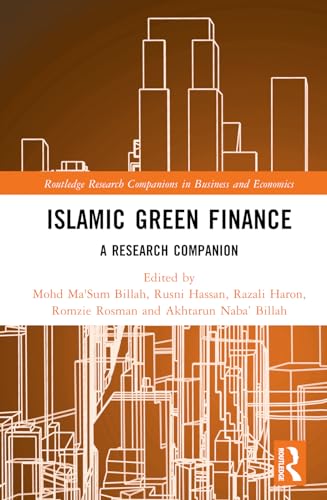
Islamic Green Finance: A Research Companion
Mohd Ma'Sum Billah, Rusni Hassan, Razali Haron, Romzie Rosman, Akhtarun Naba’ Billah
This book argues that focusing on the green economy and green finance is essential to counteract the catastrophic, socio-economic effects of the COVID-19 pandemic. Further, while numerous research initiatives in the context of the green economy and/or finance have been observed in different parts of the world, to date, no comprehensive work has been published on the topic of green finance in relation to the discipline of Shari’ah. This timely book provides a comprehensive guide and offers practical solutions to the core issues of green finance within the principles of Maqasid al-Shari’ah.It contends that Islamic green finance serves to promote global financial stability and mitigate the financial risks associated with climate change and environmental by integrating Islamic finance principles with sustainable and environmentally friendly practices; by encouraging ethical investments and prioritising long-term social and environmental benefits; and by redirecting capital towards sustainable projects and fostering a more sustainable and inclusive financial system. Islamic green finance’s emphasis on transparency, governance, risk-sharing, and responsible investing helps lessen systemic risks and supports the transition towards a more stable and sustainable global financial landscape. The book’s holistic approach to green finance in Maqasid al-Shari’ah aims to ensure that financial actions align with Islamic principles and help create a more sustainable and responsible economic system.The book is a detailed reference, which sheds light on the pressing issues of our time. It encompasses various aspects of Islamic economics and serves as a guide to implementing green financing in accordance with Islamic principles and ethics, and as such, it will appeal to academics, researchers, students and policymakers alike.
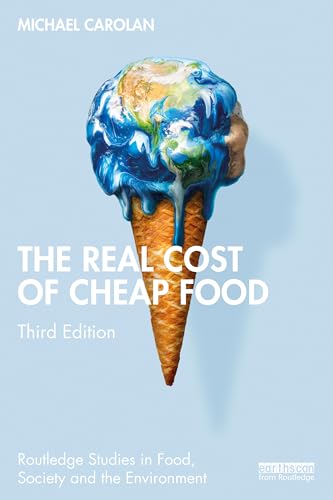
The Real Cost of Cheap Food
Michael S. Carolan
First Published in 2011. Routledge is an imprint of Taylor & Francis, an informa company.
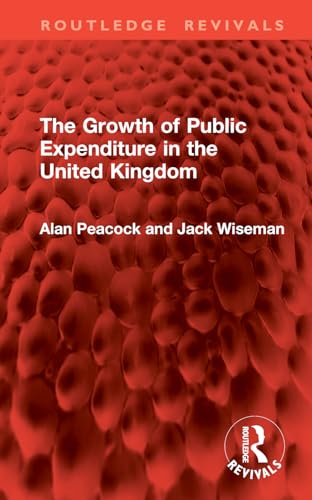
The Growth of Public Expenditure in the United Kingdom
Alan T. Peacock, Jack Wiseman
This work examines public expenditure, explaining the size and the structure of the system of public finance. Suitable for use as a course text, it can function as a point of departure for empirical and analytical studies on the behaviour of governments.
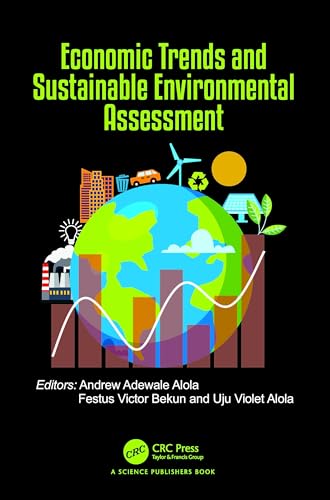
Economic Trends and Sustainable Environmental Assessment
Andrew Adewale Alola, Festus Victor Bekun, Uju Violet Alola
The book ‘Economic Trends and Sustainable Environmental Assessment’ attempts to x-ray the economic and socioeconomic activities, and cultural or behavioural aspects from the concept of sustainability by employing several related research scenarios spanning the micro-, meso-, and macro-level approaches. Given the increasing awareness of the importance of social, economic, environmental, and even now human sustainability aspects to a sustainable global (present) future, the relevance of the dimensions of Sustainable Development Goals (SDGs) need to be consistently examined. For instance, decades of climate-related disasters which have increasingly endangered humans are the reason for ongoing advanced advocacy, policy, and research towards achieving an environmentally sustainable or net zero emission (NZE) future. Thus, considering the illustration of the theoretical and practical dimensions of the connectedness of the economic and socioeconomic aspects with environmental dimensions, this book should hugely benefit students, researchers, and policymakers to further understand and solve some of the world’s lingering challenges.
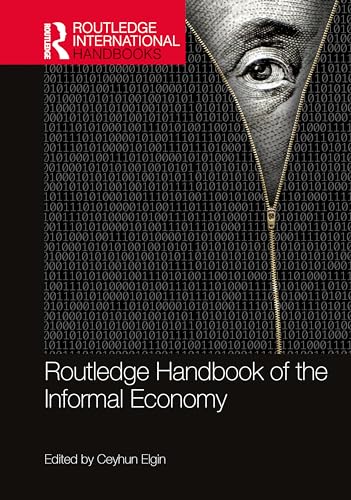
Routledge Handbook of the Informal Economy
Ceyhun Elgin
Delve into the complex landscape of the informal economy with the Routledge Handbook of the Informal Economy, a groundbreaking volume that transcends conventional economic analysis by contextualizing it within a broader regulatory and social framework. This comprehensive handbook offers cutting-edge categorical, thematic, and regional analyses of the informal, or shadow, economy. An esteemed international ensemble of contributors draws on diverse economic perspectives, exploring a spectrum of definitions and measures, including household, firm-level, and employment-based metrics, alongside perceptional and model-based estimates. Employing a variety of econometric and methodological approaches, the volume provides both regional and global estimates of the informal economy's extent. Beyond conventional boundaries, it unveils various facets of informality, from child labor, tax evasion, and self-employment to precarious and undeclared work. In-depth examinations of the determinants and consequences of informality enhance the volume's robust analysis. As a forward-looking compendium, the handbook also offers insights into the future trajectory of the informal economy as we journey further into the 21st century. This definitive and up-to-date reference work is indispensable for readers in labor economics, development economics, political economy, policy studies, and sociology, offering a nuanced understanding of the multifaceted dimensions and dynamics of the informal economy.
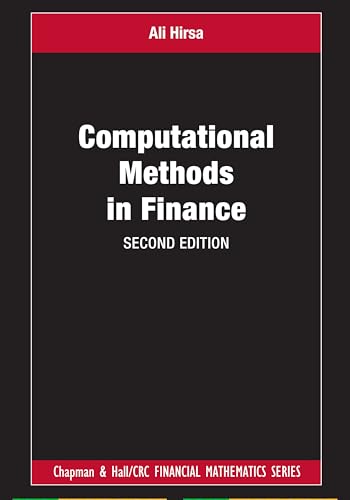
Computational Methods in Finance
Ali Hirsa
As today’s financial products have become more complex, quantitative analysts, financial engineers, and others in the financial industry now require robust techniques for numerical analysis. Covering advanced quantitative techniques, Computational Methods in Finance explains how to solve complex functional equations through numerical methods.The first part of the book describes pricing methods for numerous derivatives under a variety of models. The book reviews common processes for modeling assets in different markets. It then examines many computational approaches for pricing derivatives. These include transform techniques, such as the fast Fourier transform, the fractional fast Fourier transform, the Fourier-cosine method, and saddlepoint method; the finite difference method for solving PDEs in the diffusion framework and PIDEs in the pure jump framework; and Monte Carlo simulation.The next part focuses on essential steps in real-world derivative pricing. The author discusses how to calibrate model parameters so that model prices are compatible with market prices. He also covers various filtering techniques and their implementations and gives examples of filtering and parameter estimation.Developed from the author’s courses at Columbia University and the Courant Institute of New York University, this self-contained text is designed for graduate students in financial engineering and mathematical finance as well as practitioners in the financial industry. It will help readers accurately price a vast array of derivatives.
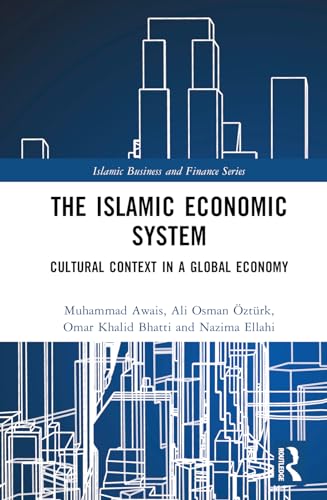
The Islamic Economic System
Muhammad Awais, Ali Osman Öztürk, Omar Khalid Bhatti, Nazima Ellahi
Islamic Economics refers to financial aspects or monetary activities and processes, which adhere to Islamic standards and teachings. The Islamic Economic System relates to the hypothetical development of an economy whose individuals follow the Islamic faith. This book presents an interesting and timely narrative of the concepts of Islamic economics in the context of Islamic culture. Its purpose is to guide individuals and organizations towards a Shariah-based Islamic Economic System. It begins by introducing the Islamic Economic System; its historical origins are explained in the framework of the verses of the Holy Quran, and in light of the Shariah scholars and the philosophical thinkers of the mid-20th century. It discusses concepts such as the evolution of Islamic Fintech and Artificial Intelligence (AI); the relationship between Islamic corporate governance and Islamic Economics; the distribution of wealth in Islam; Islamic Social Finance; Islamic Economic practices in the banking industry, behavioural norms and moral foundations; and Islamic Economics in Organisation of Islamic Cooperation (OIC) and non-OIC countries. The author emphasizes the principles that set Islamic economics apart from traditional systems, grounded in Shariah evidence and highlights the role of Islamic principles in promoting overall business success and ethical practices in the banking industry, offering comparative analysis between Islamic and conventional models, as well as economic systems. Drawing on a rich array of sources, including the Quran and interviews with renowned religious scholars, the book provides a well-rounded and thoroughly researched argument. This book will serve as a valuable resource for academics, scholars, researchers, and organizations seeking to navigate the complexities of an interest-free economic system guided by Islamic principles.